INTERNATIONAL INVESTMENT
AND PORTAL
The competitiveness of industrial parks in Vietnam is currently weak, at the same time as most need to evolve into specialised or green-oriented facilities.
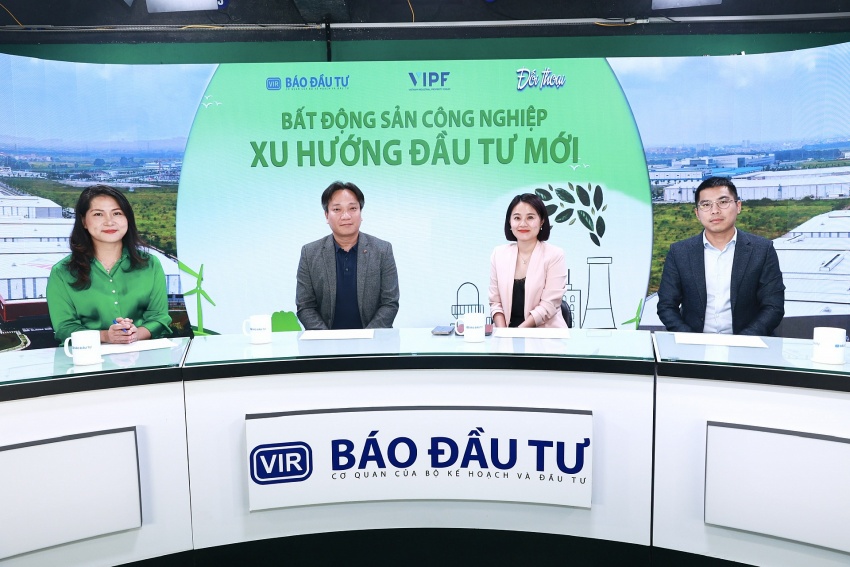
At a VIR talk show on the trend of investment in industrial parks (IPs) in the last days of July, experts said that Vietnam’s advantages are dipping due to increasing costs of land rent.
Truong An Duong, general manager of North Vietnam and Residential for Frasers Property Vietnam, said that demands on IPs have been rising sharply over the last 5-7 years thanks to numerous advantages such as China+1 relocations, affordable labour, free trade agreements, and development of transport infrastructure.
"However, the land rent prices are going up quickly, even higher than that in Thailand's IPs, so the competitiveness on costs is mitigating and affecting the growth of the market," Duong emphasised.
Dinh Hoai Nam, director and head of Business Development at SLP Vietnam, said that Vietnam is still in the spotlight in its long-term plans. However, some challenges are ahead due to the high increase in land prices.
"Total land and labour costs in Vietnam may be higher than in China. However, numerous businesses and investors still choose Vietnam as a backup plan, and Vietnam's incentives are quite attractive," Nam said.
For secondary investors like SLP, rising costs are causing some headaches. "It is quite hard for us to find golden land plots at affordable prices, so input costs are going up quickly, and output prices cannot be controlled despite our short-term support to renters. Investment efficiency is getting lower," Nam added.
According to a report from CBRE in early July, industrial land prices in tier 1 markets in the north in the second quarter increased by 0.3 per cent on quarter and 4.5 per cent on year, reaching an average of $135 per square metre.
Meanwhile, industrial land prices in tier 1 markets in the south remained steady at just over $170 per sq.m per quarter. This represents no change from the previous quarter and a modest 1 per cent increase on-year.
In the next three years, industrial land rental prices are expected to increase by 5-8 per cent annually in the north and by 3-7 per cent in the south.
Van Nguyen, transactions head for Northern Vietnam at JLL, reviewed the changes in the process of IP development. In the north, before 2015, IP developers sold land plots for businesses/ investors to build their factories. Since then, the market has become more vibrant with the entrance of secondary developers and ready-built factories.
"This time, most factories had a small scale at 2,000-5,000sq.m to meet the demand of investors that relocated from China and needed factories and big support to carry out their production as soon as possible," Van said. "In the last few years, relocated investors have asked for larger areas for factories at about 10,000sq.m or even up to 30,000sq.m, along with stricter requirements."
Duong from Frasers pointed out the increasing relevant of eco-IPs, service and urban hubs, smart IPs, and integrated facilities that cover logistics, warehouses, and ports.
"Infrastructure on electricity and telecoms should be invested in and updated to meet the demand of development in the upcoming years. At the same time, state authorities and administrative procedures should be improved for businesses and investors. This will help Vietnam and its IPs to enhance competitiveness and lure more investment," Duong said.
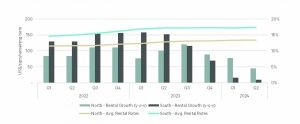 Ready-built factory market on the up
Ready-built factory market on the up
In the first half of 2024, the industrial real estate market continued to show positive developments.
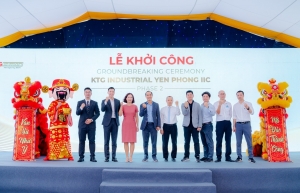 KTG Industrial breaks ground on new phase of Yen Phong IIC
KTG Industrial breaks ground on new phase of Yen Phong IIC
KTG Industrial officially held a groundbreaking ceremony for phase 2 of KTG Industrial Yen Phong IIC in Bac Ninh province's Yen Phong Industrial Park on July 10.
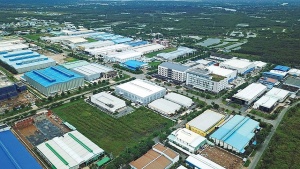 Vietnam's industrial property sector to benefit from stable growth of FDI
Vietnam's industrial property sector to benefit from stable growth of FDI
Vietnam's industrial property segment is continuing to benefit directly from a steady increase in foreign direct investment (FDI), according to a report by ACB Securities (ACBS).
 Businesses increase wishes for specialised industrial parks
Businesses increase wishes for specialised industrial parks
Vietnam’s industrial areas must evolve into more specialised types to meet the increasingly diverse needs of multinational tenants.
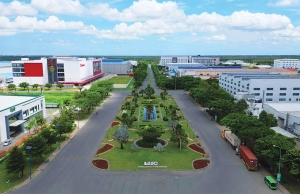 Real estate developers pin hopes on eco-IP regulations
Real estate developers pin hopes on eco-IP regulations
Industrial real estate developers are waiting for a new law to open the path for developing greener models of industrial parks.
By Nguyen Huong



















